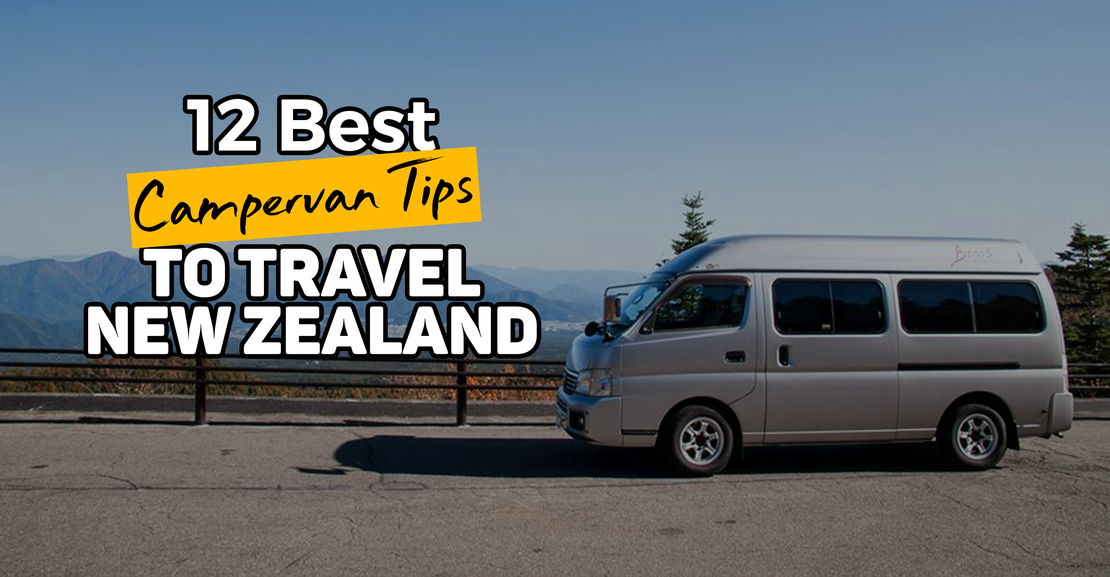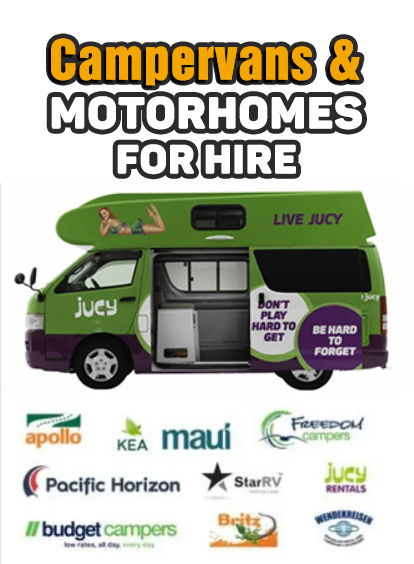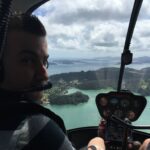✅ Last Update: Oct 6, 2024 @ 7:36 pm
New Zealand is an amazing country to be discovered, and there’s no better way to do it than hitting the open road in a campervan.
In this guide, we’ll explore the 12 best campervan tips for making your New Zealand road trip unforgettable.
- We will also add additional resources to the article, and at the end of it, let’s check them out!
1. Choose the Right Campervan
The first and most crucial step in planning a campervan trip is selecting the right vehicle. Consider factors such as size, amenities, and your budget.
Whether you opt for a compact camper or a fully-equipped motorhome, ensure it suits your travel style and needs.
- You can find campervans available for sale all around New Zealand at Travel Cars; below are some of the latest listings.
🧑💻 More information about the buying process can be found here: 12 Tips for Buying a Campervan in New Zealand
2. Plan Your Route
New Zealand’s North and South Islands offer diverse landscapes, from pristine beaches to snow-capped mountains, depending on the season you travel.
Plan your route, considering the places you want to visit, the driving distance, and the time available.
While it’s important to be flexible, having a rough itinerary in place will ensure you make the most of your journey through New Zealand.
- Discover the best routes for travelling by campervan in the following guide: Best Campervan Routes in New Zealand
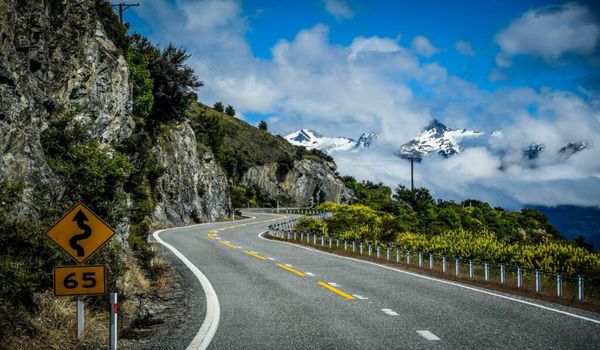
3. Book Campsites in Advance
Campsites in New Zealand can fill up quickly, especially during peak travel seasons. To avoid disappointment, consider booking your campsites in advance.
This guarantees you a spot and allows you to select locations that suit your preferences, whether it’s a scenic beachside site or a tranquil spot near a national park.
Consider using platforms like Booking.com to book your campground or holiday park.

4. Pack Essentials
While bringing everything but the kitchen sink is tempting, efficient packing is vital for a comfortable campervan journey.
Essentials include clothing for varying weather conditions, toiletries, cooking utensils, and necessary documents.
Remember charging cables, a first aid kit, and a good map or GPS device.
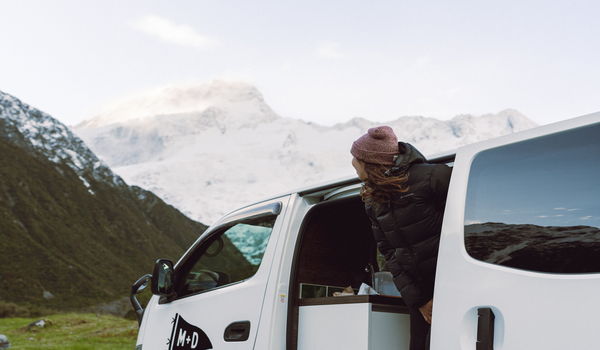
5. Understand Freedom Camping Rules
New Zealand offers the unique opportunity of freedom camping, allowing campervan travelers to stay in certain areas for free.
However, it’s crucial to understand the rules and regulations surrounding freedom camping.
Some areas may have restrictions, and it’s essential to respect the environment by adhering to Leave No Trace principles.
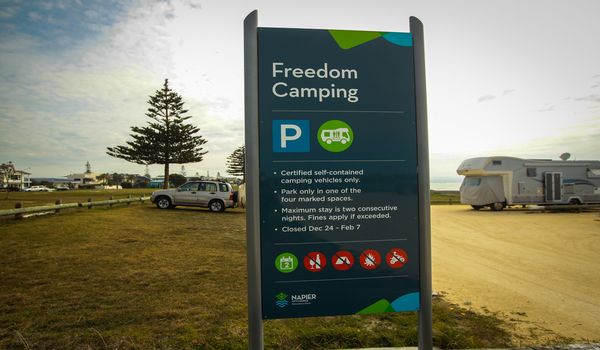
6. Embrace The Kiwi Lifestyle
Affectionately known as Kiwis, New Zealanders are renowned for their friendly and laid-back nature.
Embrace the local lifestyle by conversing with fellow travelers and locals, trying traditional foods, and participating in community events.
The Kiwi hospitality adds a special touch to your campervan adventure.
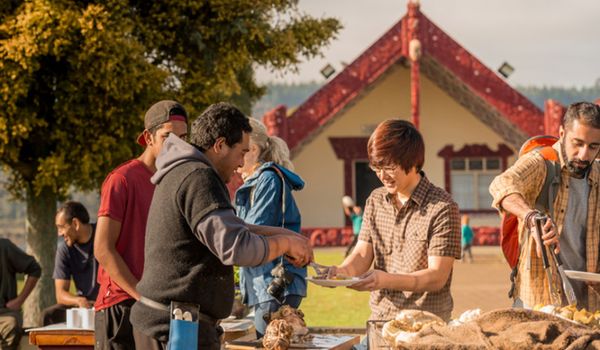
7. Be Mindful of Wildlife
New Zealand boasts unique flora and fauna; encountering wildlife is part of the charm. Be mindful of animals on the road, especially in rural areas.
Take extra precautions during dawn and dusk when many animals are active.
Respecting the local wildlife ensures a safe journey for you and the creatures that call New Zealand home.
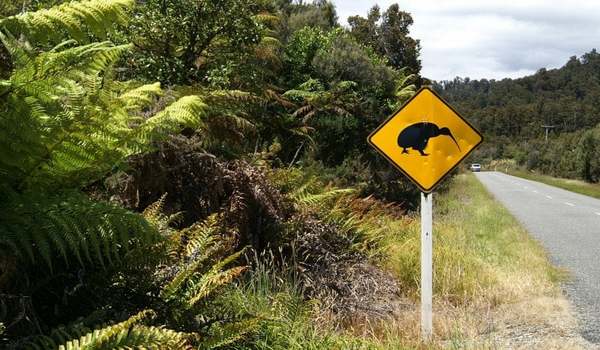
8. Weather Preparedness
New Zealand’s weather can be unpredictable, with rapid changes in temperature and conditions. Pack clothing suitable for all seasons, including waterproof gear.
Stay informed about weather forecasts, especially if you plan to explore mountainous regions.
Being prepared for varying weather ensures a comfortable and enjoyable trip.
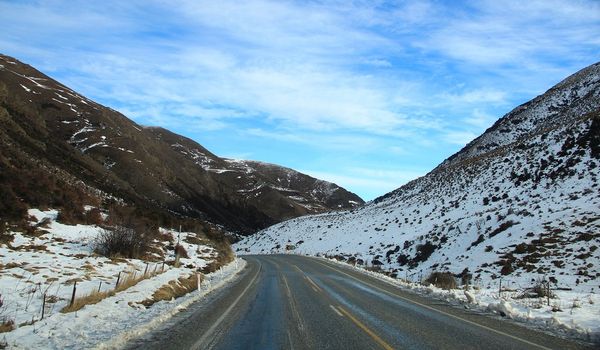
9. Learn Basic Campervan Maintenance
While campervan rental companies provide well-maintained vehicles, having some basic knowledge of campervan maintenance is beneficial.
Familiarize yourself with tasks like checking tyre pressure, refilling fluids, and troubleshooting common issues.
This knowledge can save time and ensure a smooth journey.
🔩 More info about maintenance basics can be found in the following article we prepared: Campervan Maintenance for Backpackers
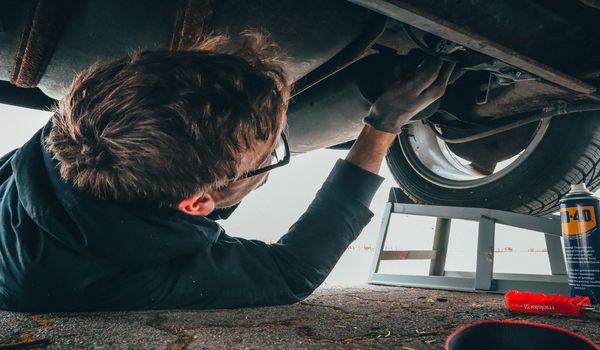
10. Connect With Local Communities
New Zealand’s charm extends beyond its landscapes to its vibrant communities. Attend local markets, festivals, and events to connect with the culture.
Engaging with communities not only adds cultural richness to your journey but also provides opportunities to discover hidden gems recommended by locals.

11. Optimize Your Campervan Kitchen
Campervans come equipped with varying kitchen facilities. Make the most of your mobile kitchen by planning meals that require minimal preparation.
New Zealand’s fresh produce markets offer a chance to experiment with local ingredients.
Consider stocking up on essentials and enjoying a mix of home-cooked and local meals.
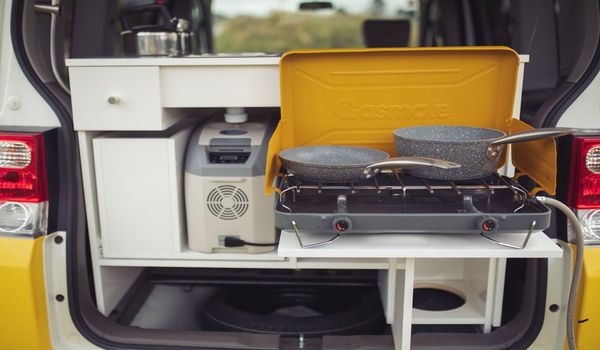
12. Practice Responsible Tourism
Lastly, practising responsible tourism is essential as a visitor to this beautiful land. Respect the environment, follow designated trails, and dispose of waste properly.
New Zealand’s natural beauty is a treasure, and every traveller plays a role in preserving it for future generations.
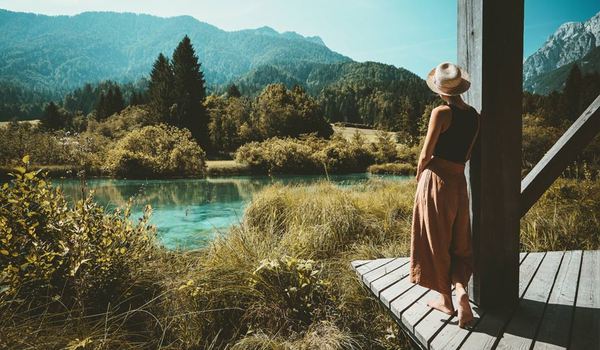
🔍 Resources about Campervanning in New Zealand
If you want more information about different topics related to campervanning in New Zealand, you can find additional resources here before starting your trip:



